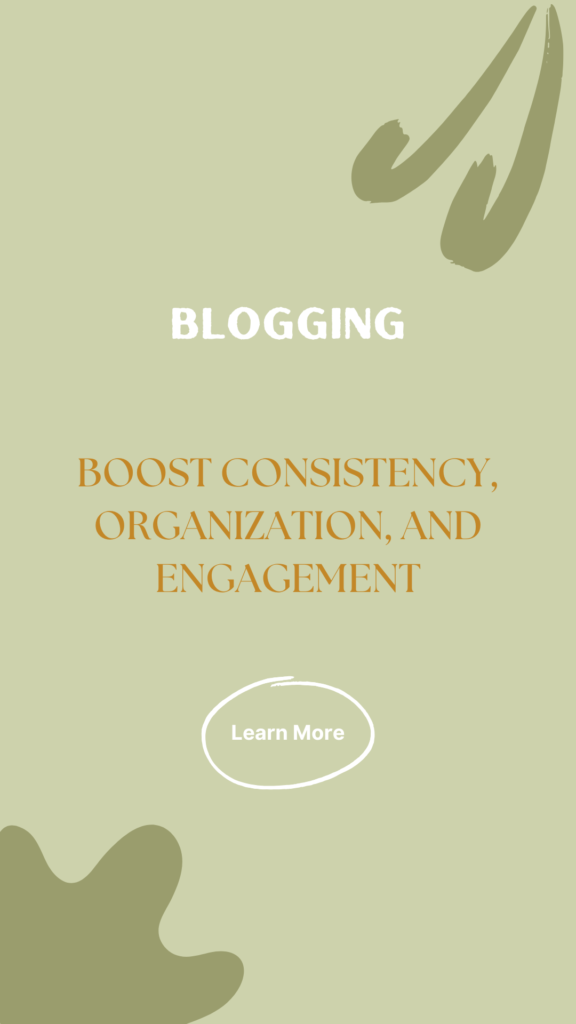Why Every Blogger Needs an Editorial Calendar: Boost Consistency, Organization, and Engagement
In the dynamic world of blogging, consistency and organization are crucial to maintaining an engaged audience and ensuring the continuous growth of a blog. One of the most effective tools for achieving these goals is an editorial calendar. This strategic planning tool helps bloggers schedule, manage, and streamline their content creation process, ensuring a steady flow of high-quality posts. In this article, we will explore the significance of creating an editorial calendar and how it can transform your blogging journey.

1. Enhanced Consistency
Consistency is a cornerstone of successful blogging. An editorial calendar allows bloggers to plan their content well in advance, ensuring a regular posting schedule. This consistency helps build a loyal audience, as readers know when to expect new content. Regular posting not only keeps readers engaged but also signals to search engines that your blog is active, which can improve your SEO rankings.With an editorial calendar, bloggers can avoid the pitfalls of sporadic posting. Instead of scrambling to create content at the last minute, they can focus on delivering well-thought-out and polished posts. This regularity not only enhances the overall quality of the blog but also fosters a sense of reliability and professionalism.
2. Improved Time Management

Blogging involves a multitude of tasks, including brainstorming ideas, researching, writing, editing, and promoting posts. An editorial calendar helps bloggers allocate time for each task, ensuring a balanced and efficient workflow. By planning ahead, bloggers can manage their time effectively, reducing the stress of last-minute content creation.
Time management is especially critical for bloggers who juggle multiple responsibilities, such as work, family, and other commitments. An editorial calendar provides a clear roadmap, allowing bloggers to prioritize tasks and stay on track. This organized approach not only improves productivity but also enhances the overall blogging experience.
3. Strategic Content Planning
An editorial calendar encourages strategic thinking about content themes and topics. Bloggers can map out their posts to align with seasonal trends, holidays, industry events, or audience interests, ensuring relevance and timeliness. This strategic approach enhances the blog’s overall coherence and appeal.
By planning content in advance, bloggers can also diversify their posts, ensuring a mix of articles, videos, infographics, and other formats. This variety keeps the audience engaged and caters to different preferences. Moreover, an editorial calendar allows bloggers to plan series or themed content, creating a sense of anticipation and continuity.
4. Facilitates Collaboration
For blogs with multiple contributors, an editorial calendar is invaluable. It provides a clear overview of who is responsible for what, ensuring that everyone is on the same page. This transparency reduces the risk of content duplication and helps maintain a cohesive brand voice.
Collaboration becomes more efficient when everyone can see the content pipeline. An editorial calendar allows team members to coordinate their efforts, share ideas, and provide feedback in a structured manner. This collaborative approach not only improves the quality of content but also fosters a sense of teamwork and shared purpose.
5. Content Diversity

By visualizing their content plan, bloggers can ensure a diverse range of topics and formats, keeping their audience engaged. An editorial calendar helps avoid repetitive content and ensures a balance of evergreen and timely posts. This diversity is essential for maintaining reader interest and addressing a wide range of audience needs.
Moreover, an editorial calendar enables bloggers to experiment with different types of content, such as interviews, guest posts, how-to guides, and opinion pieces. This experimentation not only adds variety but also allows bloggers to discover what resonates best with their audience.
6. Enhanced SEO Strategy
Regular, well-planned content improves a blog’s search engine optimization (SEO). An editorial calendar helps bloggers incorporate keyword research and SEO best practices into their planning process, increasing the likelihood of higher search engine rankings. By strategically placing keywords and optimizing content, bloggers can attract more organic traffic.
SEO is not just about keywords; it’s also about providing valuable and relevant content that meets the needs of your audience. An editorial calendar ensures that bloggers consistently deliver high-quality content that addresses relevant topics and trends, improving both user experience and search engine visibility.
7. Tracking Performance
An editorial calendar isn’t just for planning—it’s also a tool for tracking performance. Bloggers can note the publishing date, topic, and outcomes of each post, helping them analyze what works and what doesn’t. This data-driven approach informs future content strategies and helps bloggers refine their approach based on audience feedback and engagement metrics.
By tracking performance, bloggers can identify trends, discover which topics resonate most with their audience, and adjust their content plan accordingly. This continuous improvement process is essential for maintaining relevance and achieving long-term success.
8. Stress Reduction
Knowing what content needs to be created and when reduces the stress of blogging. An editorial calendar provides a clear roadmap, eliminating the pressure of coming up with new ideas on the fly. This organized approach allows bloggers to focus on creating high-quality content without feeling overwhelmed.
Stress reduction is particularly important for maintaining creativity and enthusiasm. When bloggers have a well-structured plan, they can approach content creation with a clear mind and a positive attitude. This not only enhances the quality of the blog but also contributes to the overall well-being of the blogger.
Conclusion
An editorial calendar is more than just a scheduling tool—it’s a comprehensive strategy for achieving consistent and organized blogging. By enhancing consistency, improving time management, facilitating collaboration, and supporting strategic content planning, an editorial calendar can transform a blog from a hobby into a well-oiled content machine.
For any blogger looking to elevate their game, investing time in creating and maintaining an editorial calendar is a step worth taking. Whether you’re a solo blogger or part of a team, an editorial calendar provides the structure and foresight needed to produce high-quality, engaging content consistently. Embrace this valuable tool and watch your blogging journey flourish with greater organization, creativity, and success.





